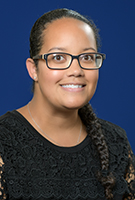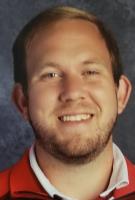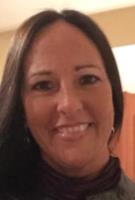
I-SEAL Grant
Indiana Wesleyan University is excited to partner with the Indiana Special Education Assisted Licensure Program (I-SEAL) to provide a pathway for Special Education Licensure in the state of Indiana. I-SEAL provides an opportunity for current classroom teachers to obtain and fund their Special Education Licensure. Thanks to the I-SEAL Grant, IWU is helping to increase the number of licensed Special Education teachers across Indiana.
Looking for Initial Licensure in Special Education?
IWU offers a Transition-to-Teaching Special Education Program
Program Description
The Special Education Teaching Certificate program is an 18-credit-hour, post-baccalaureate program. The program is designed for practicing classroom teachers with an existing teaching license who are seeking Exceptional Needs - Mild Intervention P-12 licensure in Indiana. Throughout the program, candidates gain content and pedagogical knowledge related to special education professional teaching standards. The program aligns with the initial licensure standards established by the Council for Exceptional Children, state licensure requirements for Indiana, and the Council for the Accreditation of Educator Preparation's advanced-level program standards. Courses are designed to provide participants with methods and materials to serve students with exceptionalities through mild intervention.
Candidates who have completed this program should be able to:
- Identify diverse cultural and linguistic needs and utilize available technologies to develop culturally responsive learning plans.
- Use knowledge of general and specialized curricular content to individualize learning for students with exceptionalities.
- Select and administer appropriate assessments and analyze data from multiple sources to make data-driven decisions for students with exceptionalities.
- Select evidence-based instructional strategies and resources and implement them effectively to meet exceptional learning needs.
- Demonstrate the ability to create safe, inclusive learning environments by implementing evidence-based behavioral interventions for students with exceptionalities.
- Collaborate with families, colleagues, related service providers, and other stakeholders to provide appropriate learning experiences for students with exceptionalities.
- Use foundational knowledge of the field and the professional Ethical Principles and Practice Standards to develop ethical, legally compliant communications and learning plans for students with exceptionalities.
- Demonstrate ethical, Christ-like attitudes, values, and a biblical worldview in their professional behaviors with colleagues and students with exceptionalities.
- Demonstrate strength in the following School of Educational Leadership dispositional domains: Communication, Critical Thinking, Human Interaction, Leadership, and Professionalism.
- A baccalaureate or graduate degree from a college or university that is accredited by an accrediting agency recognized by both the U.S. Department of Education (ED) and the Council for Higher Education Accreditation (CHEA) verified on original transcripts sent by the institution directly to Indiana Wesleyan University. Transcripts from foreign institutions may need to be sent to an outside agency for evaluation and determination of transferable credits, degrees, and GPA. If this outside review is necessary, students are responsible for the initiation of this evaluation and for any fees incurred during the process.
- An undergraduate GPA of 2.75 or higher from the baccalaureate degree-granting institution where at least 30 hours were completed or a graduate GPA of 3.0 or higher from master's degree-granting institution
- A valid Indiana state teaching license
- At least one year of teaching experience from an approved and accredited public, private, or parochial school in the United States or abroad
- Supporting documentation demonstrating access to a P-12 classroom
- Submit a signed FERPA Release Form
Program does not require:
- Copy of current teaching license
- Background check
To successfully complete the Special Education Teaching Certificate, candidates must have completed the following:
- Cumulative GPA of 3.0 or above in all graduate work and a minimum grade of "B-" in each course.
- Provide evidence of passing scores for the Indiana licensure exam(s).
- Payment of all tuition and fees is required to receive a certificate.
Field and Clinical Experience
All candidates must complete field and clinical experiences embedded within the special education courses.
Field experiences are required in EDSE-520, EDSE-530, EDSE-540, and EDSE-550. Keep in mind that each field experience must be mentored by a Cooperating Teacher of the candidate’s selection. The Cooperating Teacher must be (a) certified in special education for mild to moderate disabilities with (b) at least three years of teaching experience in special education, and (c) be willing to collaborate with the candidate through the field experience project.
Field experience hours are a requirement for the program, and time in the special education classrooms with a study student is necessary for each placement. Each course has specific activities and a set number of hours to be fulfilled for the field experience. The final clinical experience in EDSE-550 is a more extensive experience that can be completed at any grade level. For each field experience, candidates must select a different grade level band (P-3, 4-6, and 7-12) than previously targeted. Candidates will be required to demonstrate that they have varied their field experiences across developmental levels. All experiences occur in special education classrooms. Lastly, a service learning project is required in EDSE 560.
Candidates are responsible for finding their own placements for each of the field and clinical experiences. In the field experiences for EDSE-520, EDSE-530, and EDSE-540, this is done with the Pre-Planner form and Verification form in each course. However, for the Final Clinical Practice in EDSE-550, this will be completed through an e-form in EDSE-540. The link to the e-form will be sent via email from the Office of Clinical Experiences. The Pre-Planner and Verification forms need to be submitted by the end of Workshop 1 for the course with the field experience, or you may be administratively withdrawn from the course. The e-form for the Final Clinical Practice needs to be submitted by the end of Workshop 3 in EDSE-540 to get your placement secured for EDSE-550. If your e-form is not submitted, you may be administratively withdrawn from the course.
Each field experience will require you to work closely with one student, and the Final Clinical Practice will require you to work with a variety of students. In each experience and practice, some assignments will ask you to video record your work. In order to ensure that we are protecting the rights of all students, you will need to secure parental permission to video record students. This form must be submitted prior to conducting any recordings. Each course will have the paperwork needed to help you secure that permission. Additionally, at the end of each course leading up to a field or clinical experience, you will receive all of the information and paperwork needed to help you begin securing your permissions.
For additional information regarding field and clinical experience expectations, please refer to the Field and Clinical Experiences Handbook. It can be found on the IWU Portal on the Office of Clinical Experiences page.
Program of Study
Candidates will develop instructional strategies and approaches that are culturally relevant and meet the literacy and language needs of students with exceptionalities. The course will focus on the identification and use of standards-based and evidence-based methodologies that strengthen the demonstration of respect for diversity in areas of exceptionality and language. Candidates will design effective language and literacy instructional strategies, interventions, and supports that respect individual learning differences and exceptionalities.
Language and Reading Disabilities (etext)
ISBN: 9780132998864
Candidates will explore current assessment practices with emphasis on legal and ethical considerations, formal and informal assessment tools, test scores, and technical adequacy. They will gain experience making accommodations, using observational assessment, evaluating teacher-made tests, and selecting appropriate diagnostic measures for determining eligibility and accountability for students with exceptionalities at any age. The course will focus on the use of assessment data to make informed instructional decisions for reading intervention and respectful communication of assessment results. This course requires field experiences. Prerequisite: EDSE-510
Assessment in Special Education (etext)
ISBN: 9780133072013
This course will focus on exploring evidence-based methodologies for understanding and managing behavior. Candidates will examine behaviors as related to disability, study functional behavior assessment, and develop behavior intervention plans. Emphasis will be given to legal mandates associated with analyzing behavior and utilizing interventions within the schools with individuals affected by disability. This course requires field experiences. Prerequisite: EDSE-510, EDSE-520
Applied Behavior Analysis for Teachers (etext)
ISBN: 9780133091915
Candidates will develop effective teaching strategies and interventions for students with Autism Spectrum Disorder. Based on an understanding of the etiology of Autism Spectrum Disorder, candidates will create evidence-based instructional practices that use assistive technologies to address specific academic, behavioral, social, and communication needs. Candidates will cultivate skills in effectively supporting and enhancing students' success in various environments. This course requires field experiences. Prerequisite: EDSE-510, EDSE-520, and EDSE-530
Strategies for Teaching Students with Learning and Behavior Problems (etext)
ISBN: 9780133572360
Methods for Teaching Students with Autism Spectrum Disorders (etext)
ISBN: 9780133585216
This course will equip candidates to collaborate with other educators, service providers, and parents to develop and implement appropriate services and supports for students with exceptionalities. Candidates will strengthen their interpersonal skills as they seek to address challenges that affect families with children with exceptionalities. The course will focus on promoting the essential skills of communication and problem solving through developing self-awareness of the influence of their own and others' attitudes, behaviors, and ways of communicating on instructional practice. Candidates will collaborate in culturally responsive ways with families, other educators, related service providers, and personnel from community agencies. This course requires field experiences. Prerequisite: EDSE-510, EDSE-520, EDSE-530, and EDSE-540
Strategies for Teaching Students with Learning and Behavior Problems (etext)
ISBN: 9780133572360
Families, Professionals, and Exceptionality: Positive Outcomes Through Partnerships and Trust (etext)
ISBN: 9780133548778
Candidates will explore professional issues around disability services. Topics include definition, life-span concerns, community collaboration, response to intervention, religion and culture, laws, and bio-medical ethics. The seminar provides candidates with an opportunity to investigate topics that are relevant to their own teaching practice to promote a Christian response to disability. This course requires field experiences. Prerequisite: EDSE-510
Law & special education (etext w/access card)
ISBN: 9780135175002
Total Credit Hours: 18
Candidate Expectations
TIME
Because of the accelerated nature of the program, most workshops require 13 to 20 hours of coursework.
BREAKS
Some courses have break weeks during the course, while other courses do not have any break weeks. Sometimes there are break weeks between courses, and sometimes courses run back-to-back.
DUE DATES
Most assignments are due on Day 7, and most discussions are due on Day 4/Day 7. However, that is not always true, and the structure is intentional. Some formative assignments are scaffolded over the whole course and other assignments are scaffolded within a workshop. If candidates choose to work ahead, they should be sure to clear it with the instructor in case some assignments rely on instructor feedback or content/skills from previous assignments. To be successful in these courses, candidates should find a weekly rhythm in which they can schedule time to read, time to process, and time to work on the assignments.
LATE POLICY
Because of the accelerated nature of the program, SoEL has a standardized late policy: No late assignment submissions will be accepted. If candidates get too far behind, it is hard to catch up. Although the policy itself is non-negotiable, we have grace built into the policy by allowing instructors to use discretion on a case-by-case basis. Most instructors require documentation as evidence of an extenuating circumstance; some may not.
COMMUNICATION & FEEDBACK
Faculty are expected to provide grades and feedback within seven days of the assignment due date and respond to student inquiries with 48 hours. However, faculty members are not expected to be available every day of the week or on holidays. Additionally, faculty are not required, expected, or encouraged to work or answer emails on Sunday so that they may attend church, spend time with their families, and reflect on God’s sovereignty. Some faculty may choose to be engaged in the online classroom over the weekend; however, it is not an expectation.
ZOOM OR SYNCHRONOUS SESSIONS
Some instructors may hold live office hours or synchronous sessions via Zoom. Candidate attendance in any of these sessions is not required. They are optional and voluntary for candidate participation. Additionally, the instructor is not required or obligated to conduct these sessions.
KEY ASSESSMENTS
Throughout this program, candidates will have a variety of summative assessments to complete, which we refer to as the Key Assessment. Each course has a Key Assessment that has been created to assess candidates’ skills and understanding of major course topics. The Key Assessment is submitted at the end of the course, and it is comprised of formative assignments that have already been completed.
As candidates complete the formative pieces of the Key Assessment throughout the course, they will want to pay special attention to any feedback received from the course instructor. If changes are recommended, the feedback should be used to make necessary adjustments. In the last workshop of the course, candidates will compile all the formative pieces into one submission. This submission is the summative assessment, which we call the Key Assessment.
Each Key Assessment workshop assignment is accompanied with a Key Assessment Coversheet. It is important to take time to review the coversheet when you are introduced to your first formative assessment because it will explain the entire Key Assessment project.
Faculty

Dr. Allisha Beerwart
Dr. Beerwart has an Ed. D. in Special Education from Regent University. She is an Assistant Professor for the Special Education Program and Department Chair for the English as a New Language and Special Education Programs. She is an experienced educator with more than 10 years of experience working in the special education field. Her research interests include examining the effectiveness of Universal Design for Learning, exposing misconceptions in classroom management, and the significance of identity and culture in the classroom. Dr. Beerwart has presented locally, nationally, and internationally; most notably at the 6th Annual African Disability Rights Conference at the University of Pretoria in Pretoria, South Africa.
- Ed.D. in Special Education
- Ed.S. in Educational Leadership and Administration K-12
- M.S. in Education, Special Education – Adapted Curriculum K-12

Dr. Zachary Wilson
I have been a full-time educator for the past decade, former special education teacher of the year, high school soccer coach, husband for eight years, and father of two daughters. I consider my work to coincide with my service to the Lord. My intention was never to become a Special Educator but I can say that Special Education has been a calling for me.
Every day I have the opportunity to "love the unlovable." I serve as an advocate for the students and families who need it the most. My favorite part about serving as a special educator are the relationships that are formed through co-teaching. Everything about what we do daily is about building relationships with students, families and staff members.
- Ed.D. in Educational Leadership
- Ed.S. in Educational Administration
- M.S. in Special Education
- B.A. in P.E. and Health

Dr. Michael Taylor
I am a dedicated educator, loving husband and kind father to two beautiful children, Trent and Olivia. My wife and I are passionate about working with children from hard places. We adopted both of our children from Arkansas' foster care system. We live in Central Arkansas. My wife works as an auditor for the Arkansas Division of Legislative Audit and I work as an Assistant Special Education Supervisor for a large, urban school district. We actively work within our church in leadership roles in children's ministry and help to develop free programs for youth, such as no-cost ACT prep courses.
I received a B.A. in Spanish from the University of Arkansas at Little Rock, a M.S.E. in Special Education from Arkansas State University, a M.Ed. in Counselor Education from the University of Arkansas at Little Rock, and an Ed.D. in Curriculum and Instruction from the University of Louisiana at Monroe. I am especially interested in research regarding the use of social learning networks as second language acquisition tools for Adult English Leaners (ELs) and how K-12 educators can appropriately assess ELs for special education and related services.
- Ed.D. in Curriculum and Instruction
- M.Ed. in Counselor Education
- M.S.E. in Special Education
- B.A. in Spanish

Dr. Amy Blake
Greetings!! Thank you for this opportunity to briefly introduce myself.
My professional career began as a high school math teacher in 1992. I taught algebra and geometry for 16 years while working with students who have emotional disabilities. During that time, I continued my education to earn a master’s in special education. Later, I earned a district license for Director of Exceptional Needs. I had the opportunity to serve 2 years as a building level administrator prior to moving into a district level position. As of 2010, I began serving as the director of special education for a 6-district cooperative that is located in east central Indiana. In an effort to continue my professional growth, I finished my Ph.D. in Education Administration in May 2016. God is leading in various ways, and I am so excited to serve in this role at IWU.
My daughter, Mandy, is grown and lives on her own. She is an educator as well and serves as an elementary teacher. My parents and brothers live close, and I feel blessed each day to serve God through a daily commitment to work, family, and sharing Christ with others.
- Ph.D. in Education Administration (May 2016)
- District Level Licensure as Director of Exceptional Needs (May 2008)
- M.S. in Special Education (1996)
- B.S. in Secondary Mathematics (1992)
Faith Integration
Indiana Wesleyan University (IWU) is a Christian comprehensive university of The Wesleyan Church. The University was founded in 1920 as Marion College and is committed to liberal arts and professional education. IWU is an energized community committed to changing the world. We guide students in discovering their individual purpose and life calling and help them develop in character, scholarship, and leadership.
Scholarship at IWU builds on distinguished academics through high-quality, collaborative work by students and faculty members. IWU offers a spiritually rich learning environment with academic commitment and caring instruction where students flourish from individual attention.
Transfer of Credit Policy
Recognized academic credentials and academic credit hours earned outside of IWU may be used to fulfill the entrance requirements and/or course requirements for IWU academic programs and may provide advanced standing entry into IWU academic programs within the following boundaries.
The University Registrar is responsible for approving the transferability of all credit-hours. Credit hours accepted in transfer are recorded as part of the student's official academic record, but quality points and grades are omitted. Grades from transfer courses are not included in IWU GPA calculations, except when determining honors for baccalaureate degrees. IWU is not permitted to release received transcripts, test scores, or other academic documents to the student or any other party. All credit hours are accepted as semester credit hours; quarter credit hours are converted to semester credit hours using a two-thirds conversion ratio.
Credit is granted for graduate course work with a satisfactory grade ("B" or above) in a 500-level course or higher, taken at a college or university that is accredited by an accrediting agency recognized by both the U.S. Department of Education (ED) and the Council for Higher Education Accreditation (CHEA).
No more than 35% of a graduate degree or certificate program may be satisfied by transfer credit. Graduate credit hours graded credit/no credit or pass/fail at another institution may not be transferred in unless approved by the academic unit. Transfer credit hours applied to the major curriculum of the academic program must be academically current as determined by the academic unit and may be restricted by the academic unit based on curricular considerations or the requirements of programmatic accreditation. Individual academic units may specify exceptions as appropriate for their respective disciplines or accrediting bodies.